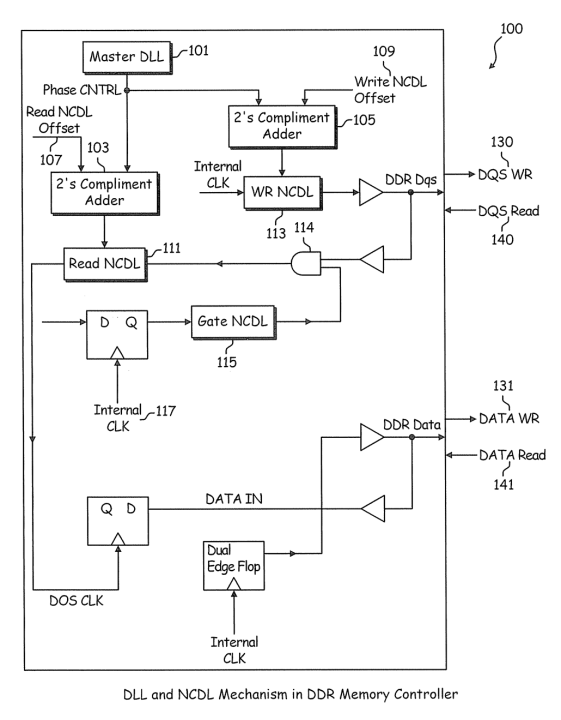Ever since 2008 when Satoshi Nakamoto’s mysterious white paper “Bitcoin: A Peer-to-Peer Electronic Cash System” was first published, blockchain has been making endless appearances in tech blogs everywhere. A lot of claims have been made about how blockchain will change the world, but some are speculating that blockchain might be sinking into the trough of disillusionment.
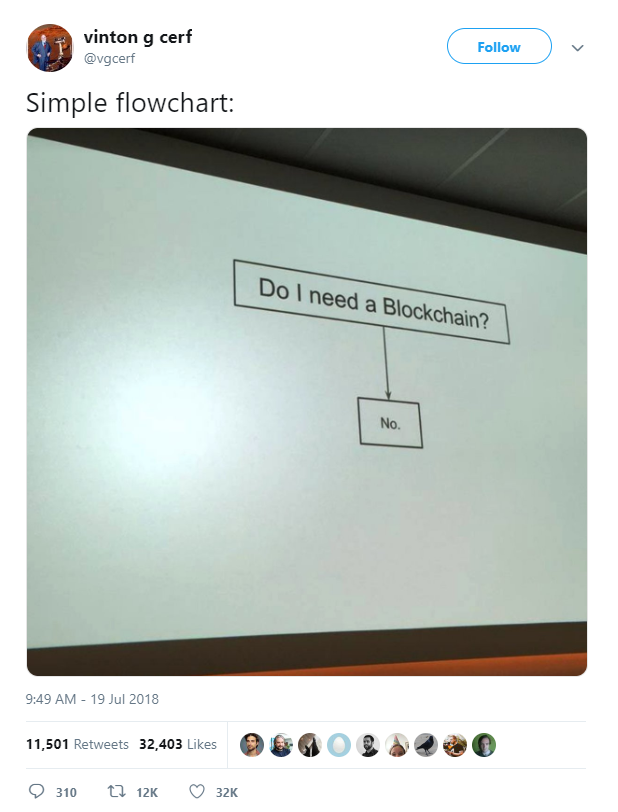
Source: vinton g cerf on Twitter
But uses for this technology go beyond cryptocurrency. Here are some applications that indicate blockchain fever might be here to stay.
Secure Voting
The news media has given more frequent attention to the nuts and bolts of the electoral system since the 2016 election, and potential vulnerabilities in electronic voting have gained wider recognition. Blockchain, which creates an immutable record or ledger that cannot be controlled by a single person, is an ideal candidate for reducing the chance that voting results could be tampered with. One company, Voatz, has already conducted a pilot in West Virginia, allowing military voters stationed overseas to cast votes in the midterm elections using their smartphones.
The applications of blockchain-based voting go beyond government elections. In 2018, Broadridge Financial Solutions, Inc. announced that they had received US patent number 9,967,238 which is “directed to blockchain technology that will enhance the processes for proxy voting and repurchase, or repo, agreements.”
Diagram from US Patent No. 9967238 B1
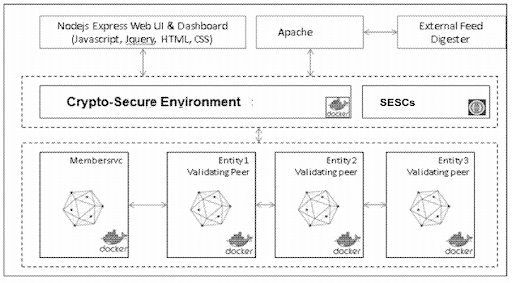
Source: Espacenet
However, some security experts are not satisfied that blockchain technology is an adequate response to the threats posed by voting on the internet. In an article from the MIT Technology Review Marian K. Schneider, president of Verified Voting, says of Voatz,
“I think they’ve made a lot of claims that really don’t justify any increased confidence in what they are doing versus any other internet voting system.”
Running a search for patents within the ktMINE database including “blockchain” or “blockchain” as well as variations of the stem “vot” reveals that the largest number of patents are being filed in the US and China. Interestingly, more applications have been filed in China though far fewer patents have been granted as a percentage of applications.

Source: ktMINE Search App
Supply Chain Transparency
Modern companies are large complex organizations with complex relationships, and it can be difficult to keep track of all the transactions that occur along a supply chain, let alone prove that those transactions were ethical, authentic, and legal. A new company called MineSpider has adapted the blockchain to record transactions between miners and firms that procure metals or minerals in order to improve confidence and reduce the legal risk associated with purchasing these resources. Bumble Bee Foods, whose iconic tuna can be found in grocery stores all over North America, is also using blockchain to make its supply chain more transparent. They announced at the beginning of March that they would be using the SAP Cloud Platform Blockchain service. Even the United States Postal Service is getting in on the blockchain game. In 2016, they released a report pointing out that blockchain technology could be used in supply chain management.
Top Applicants Last 5 Years Supply Chain Blockchain Patents
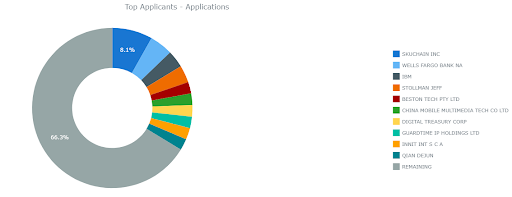
Source: ktMINE Search App
Titles and Proof of Ownership
Transactions of physical assets such as cars can similarly be recorded on a blockchain. In Ohio, a company called Ownum recently launched a product which puts the car titling process on a blockchain. Bernie Moreno, the chair of Ownum, believes that Cleveland could become the capital of blockchain. In other parts of the world, blockchain is seen as a potential solution to the problem of land titles. Kenya, Mexico, and Brazil are among some of the countries giving blockchain-based land registries a try.
However, very few patents seem to exist in the blockchain land registries space. A quick search in the ktMINE search application reveals only two granted patents for the keywords “blockchain” and “land.” This could be because establishing a digital land registry would likely require a government contract, protecting businesses from outside competition for at least the contract term.
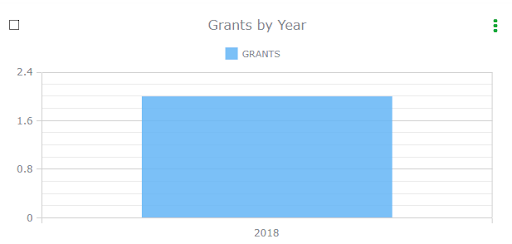
Source: ktMINE Search App
Changing the World?
While blockchain has failed to fundamentally uproot all the world’s financial systems as promised, it does still have some interesting uses emerging today. To find out more about what the future of blockchain has in store and learn how to use patent data to reveal trends in emerging technologies, reserve your spot at ktMINE’s Emerging Technologies Webinar.




